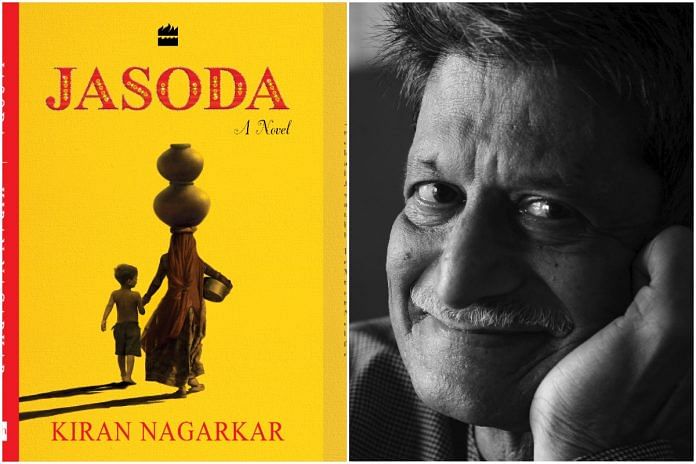Jasoda traces the journey undertaken by the titular character and her children for survival in the face of patriarchy and gut wrenching poverty.
Jasoda (HarperCollins, 2017) is a nuanced, visceral novel that is, both, dark and painful. Jasoda, the titular character, may not be a character from an epic, but she is no less heroic than Draupadi from Mahabharata or Achilles from Illiad.
Kiran Nagarkar, of Cuckold fame, has not disappointed with his latest novel.
In a barren land with no hope in sight, Paar, loosely translated as Beyond, is not set in a futuristic world but the one we live in. Despite being fictional, the novel may very well be set in any village in India, where farmers commit suicide in order to ensure their family’s survival. This results in a book that is brutal yet unputdownable. In the face of death, neither morality nor philosophies have any part to play in this world. Instead, the reader gets a protagonist that they wouldn’t relate to, but would root for.
The novel reminds one immediately of the beauty in the use of prologues. It sets the tone of the novel when the eponymous Jasoda killing her newborn child right after having worked on the fields. The reader is immediately made to realise that the book is, by no means, a light read. Instead, it lingers in the pysche for a long time, making the reader aware of their own privilege.
Instead, the author, with his acute observation, weaves a society which has hit the rock bottom. The narrative is devoid of judgement and the reader is left to understand the characters for themselves. Between a wheelchair bound Prince who pours out his frustration at his aid, and Jasoda’s husband, Sangram Singh, who in turn uses and abuses his power as an upper-caste male figure in the village, Nagarkar embraces the grim circumstances which creates the characters of the novel. The harrowing conditions loom large in the background and at no point does it lag in the course of the story. The poverty and the patriarchal society that is still stuck to age old feudal practices, each character is dehumanised to the point where even death is treated like a farce.
Against these circumstances, Jasoda shines through as a character with fortitude and an instinct for survival. She is, foremost, a mother who fights for her children’s survival through draught and poverty.
With changing times, as her children grow up and take command over their own lives and choices, she is, by no means a character that takes a back seat. Instead, she adapts herself with changing times, all the while never forgetting where she came from. Her relationship with her children, particularly, Himmat and Janhavi, are the defining tangents of the novel. They add a softness to her character, who is hardened by her conditions. In stark contrast to her, is her husband who refuses to adapt with the changing times. He is an albatross hanging on her neck and while the reader may struggle to pin her in the categories of a saintly mother or a killer, there is no ounce of sympathy that one can feel for him.
The author has spun a narrative that sets aside any moral lessons yet tugs the chords of the heart. It is not a story with pretty words and a bow tied happy ending. Instead, it is sordid and brutal, leaving nothing for imagination. While it is, most definitely, not a book for light reading, it is a great addition to the contemporary Indian literature.
The author is a postgraduate in Journalism and English literature from Indian Institute of Mass Communication and the University of Delhi, respectively.



